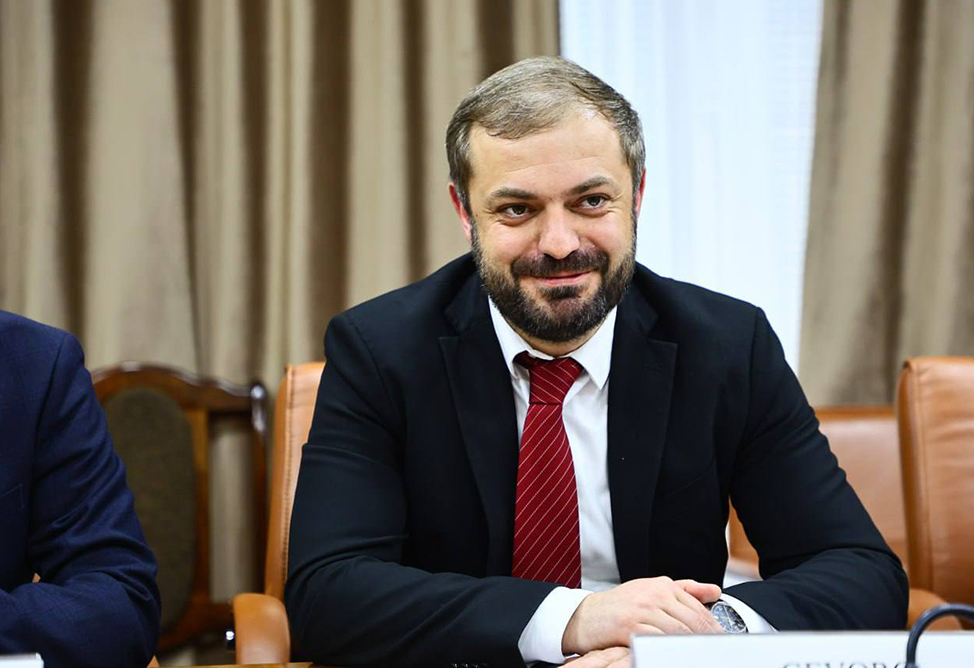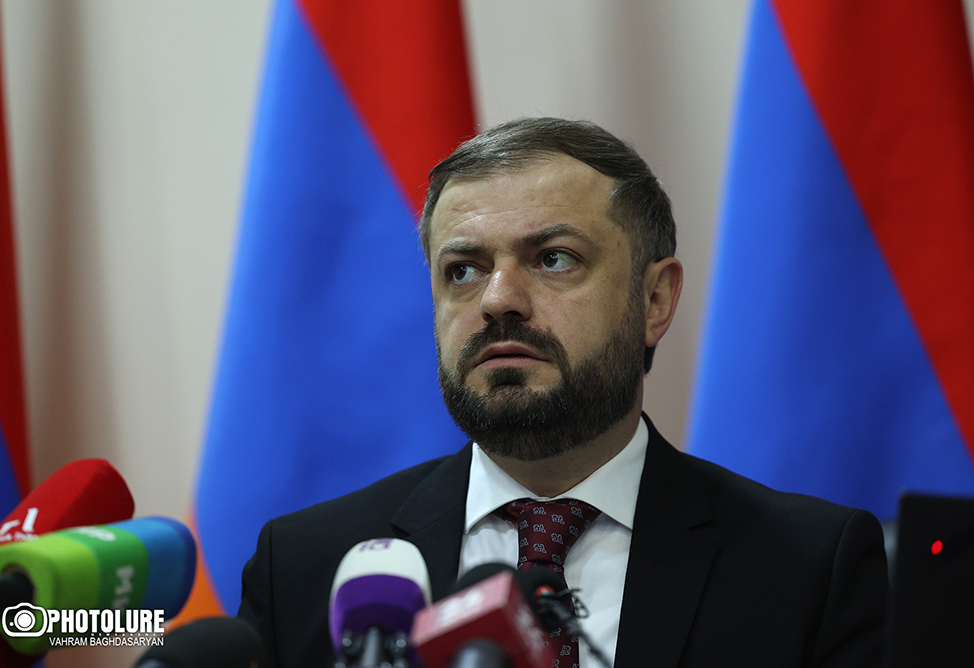Opening borders with Azerbaijan and Turkey will allow Armenia to reduce import costs – Papoyan
24.09.2025,
15:38
It is essential to establish peace in the region, which would unlock new import and export opportunities for Armenia and generate a positive economic impact, asserted Armenian Economy Minister Gevorg Papoyan.

YEREVAN, September 24. /ARKA/. It is essential to establish peace in the region, which would unlock new import and export opportunities for Armenia and generate a positive economic impact, asserted Armenian Economy Minister Gevorg Papoyan.
"Armenia, Turkey, and Azerbaijan primarily export various products, yet they also manufacture goods that are necessary for the Armenian economy. Armenia has the potential to import several items that are currently sourced from other countries at significantly lower costs. This indicates that the focus is not solely on diversification, but also on reducing prices and minimizing reliance on specific markets," he stated during a panel discussion at the forum titled "Future of the Banking System: Innovation and Development Prospects," which took place in Yerevan on September 23-24.
The minister emphasized that this initiative goes beyond merely opening communication channels; it encompasses two critical outcomes of this endeavor: enhancing security and broadening economic opportunities.
"Moreover, a secure environment will facilitate more efficient economic performance," Papoyan remarked.
He also shared insights from his article, "Crossroads of Peace: Advancing Regional Integration and Global Trade Through Post-Conflict Cooperation," which was published in the Journal of Liberty and International Affairs.
Papoyan cautioned against politicizing these matters. "If, for instance, the borders are opened in December 2026, we must comprehend the challenges we will encounter and how we can advance our production capabilities. Numerous challenges and opportunities will emerge. There are sectors where Armenia has much to contribute," Papoyan concluded.
He indicated that should Armenia's borders with Azerbaijan and Turkey be completely opened, seven checkpoints will become operational, along with rail services, especially in the Meghri, Yeraskh, and Gyumri regions.
"The opening of the roads is crucial for us. We are currently encountering numerous challenges solely because Armenia has only two open borders," Papoyan remarked. He emphasized that the Trump Route (TRIPP) represents merely one component of the Armenian "Crossroads of Peace" transport initiative—the subsequent phase of its execution.
"This will enable us to transition from a conversation about peace to a narrative of 'peace through economics,' generating economic incentives for Armenia itself, its neighboring countries, and significant international stakeholders," Papoyan stated.
As per the most recent figures from the ArmStat, Armenia's foreign trade turnover experienced a decline of 42% during the first seven months, totaling $11.4 billion. Exports from January to July 2025, in comparison to the same period in 2024, fell by 49.6%, reaching $4.4 billion, while imports decreased by 35.8%, amounting to roughly $7 billion.-0-
"Armenia, Turkey, and Azerbaijan primarily export various products, yet they also manufacture goods that are necessary for the Armenian economy. Armenia has the potential to import several items that are currently sourced from other countries at significantly lower costs. This indicates that the focus is not solely on diversification, but also on reducing prices and minimizing reliance on specific markets," he stated during a panel discussion at the forum titled "Future of the Banking System: Innovation and Development Prospects," which took place in Yerevan on September 23-24.
The minister emphasized that this initiative goes beyond merely opening communication channels; it encompasses two critical outcomes of this endeavor: enhancing security and broadening economic opportunities.
"Moreover, a secure environment will facilitate more efficient economic performance," Papoyan remarked.
He also shared insights from his article, "Crossroads of Peace: Advancing Regional Integration and Global Trade Through Post-Conflict Cooperation," which was published in the Journal of Liberty and International Affairs.
Papoyan cautioned against politicizing these matters. "If, for instance, the borders are opened in December 2026, we must comprehend the challenges we will encounter and how we can advance our production capabilities. Numerous challenges and opportunities will emerge. There are sectors where Armenia has much to contribute," Papoyan concluded.
He indicated that should Armenia's borders with Azerbaijan and Turkey be completely opened, seven checkpoints will become operational, along with rail services, especially in the Meghri, Yeraskh, and Gyumri regions.
"The opening of the roads is crucial for us. We are currently encountering numerous challenges solely because Armenia has only two open borders," Papoyan remarked. He emphasized that the Trump Route (TRIPP) represents merely one component of the Armenian "Crossroads of Peace" transport initiative—the subsequent phase of its execution.
"This will enable us to transition from a conversation about peace to a narrative of 'peace through economics,' generating economic incentives for Armenia itself, its neighboring countries, and significant international stakeholders," Papoyan stated.
As per the most recent figures from the ArmStat, Armenia's foreign trade turnover experienced a decline of 42% during the first seven months, totaling $11.4 billion. Exports from January to July 2025, in comparison to the same period in 2024, fell by 49.6%, reaching $4.4 billion, while imports decreased by 35.8%, amounting to roughly $7 billion.-0-



